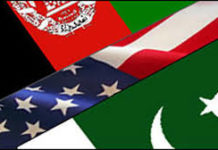By Muhammad Luqman
Pakistan’s Ministry of Science and Technology has launched what it called country’s “first official” moonsighting website and a calendar showing main Islamic dates and months for the next five years based on scientific evidence.
The website, pakmoonsighting.pk, has been launched “to halt the moonsighting controversy” that rears its head in the country every year prior to Islamic months and religious festivals like holy month of Ramadan and Eidul Fitr.
Titled Moon Sighting Pakistan, the website features sections such as a monthly Hijri (Islamic) calendar for the next five years, a day-to-day lunar calendar against dates from the Gregorian calendar, and the dates on which the first day of every lunar month will fall.
Also available are the scientifically determined dates for all major Islamic festivals/days for the ongoing and next years. Readers can access year-wise data about the New Crescent Moon, monthly moon visibility maps and monthly moon coordinates in major cities on the site as well.
The launch was made at a ceremony in Pakistan,s eastern city of Lahore where the minister for science and technology , Fawad Hussain Chaudhary highlighted importance of technology which he said can help sight the moon without much trouble.
He said that a mobile phone app was also under preparation by the scientific committee after which people would also be able to sight moon on their smartphones.
Chaudhry had earlier this month announced that the lunar calendar being prepared by a scientific committee formed by the government and showing the exact dates of important Islamic occasions — Ramazan, Eidul Fitr, Eidul Azha, Muharram — would be finalised by the 15th of Ramazan.
 “In my opinion Ruet-Hilal Committee is no longer required (for moon-sighting,” the minister said of the central body comprising religious scholars and experts.
“In my opinion Ruet-Hilal Committee is no longer required (for moon-sighting,” the minister said of the central body comprising religious scholars and experts.
Fawad Chaudhry has come under severe criticism from religious circles after his statements about the role of clergy in moon-sighting.
The moon-sighting has long created controversies in Pakistan every year particular when it comes to the sighting of Ramadan and Eid moons.













